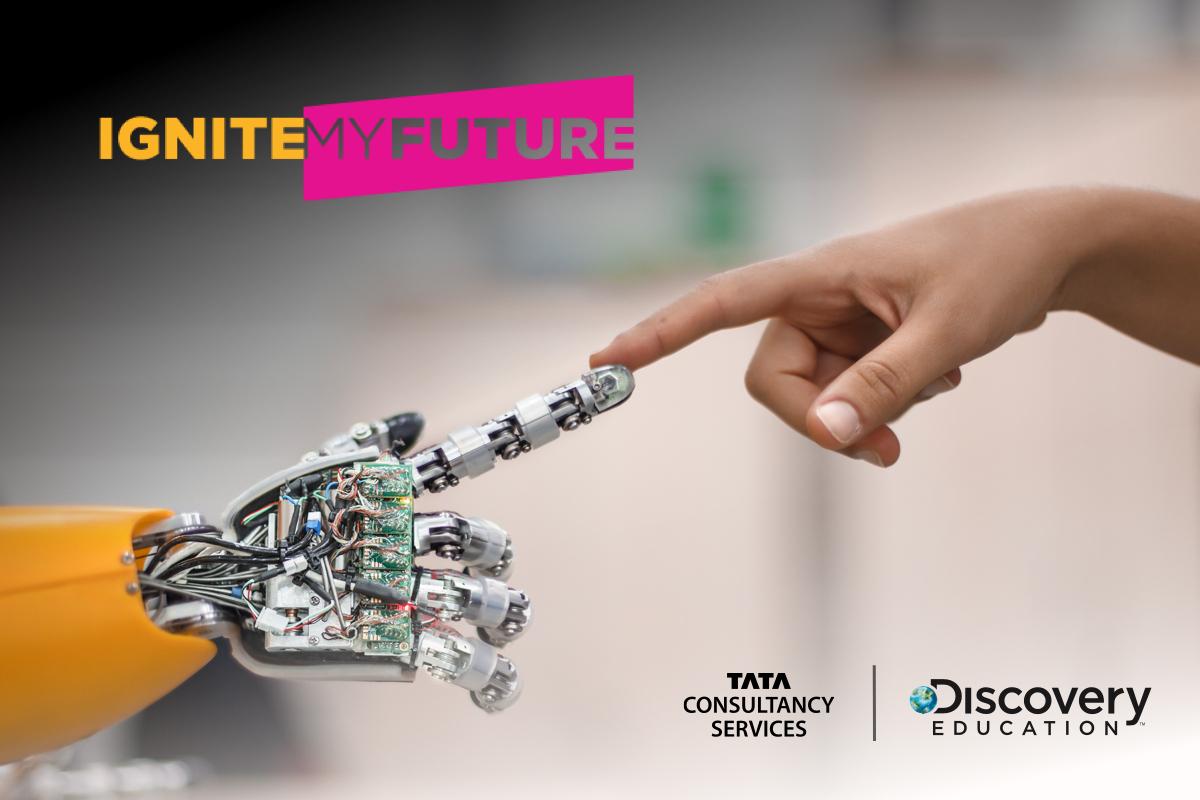It's Election Season! See How You Can Use Computational Thinking in Your Virtual Classroom
By Dana Johnson, Instructional Specialist at West Orange Elementary School, Orange Unified School District

Between the 2020 Census and impending presidential election, this is an important year for civic events. With many students still learning from home due to the pandemic, teachers may be wondering how to appropriately facilitate discussions about politics.
Education Week covered the challenges in place for teachers this year, “It takes longer to form a classroom community in virtual classes – [but] it’s even more important. All the natural [aspects] of community [..] can’t happen as easily virtually.”
Given these unusual circumstances, it’s more important that educators are set up for success. In the third installment of our fall blog series, we’re covering how to use computational thinking resources from Ignite My Future in School to facilitate classroom discussions about political topics.
Building a movement
Technology, and specifically social media, have had a significant impact on civic engagement. We live in a time where we’re able to access and share data with the click of a button, facilitate discussion about topics that are important to us and participate in democratic processes.
How does this connect to students?
Social media and “viral” posts are relevant to most students’ lives. Consider how social media platforms use analytics to determine what shows up in your feed, or how search engines use proprietary analytics to determine what results we see first.
The ability to reach millions of people across the world with ease is a relatively new phenomenon that experts are studying to determine which psychological factors make content go viral – especially among more vulnerable populations like children.
With this in mind, it’s become increasingly important that teachers are able to discuss social media and how it connects across subject areas, including civics.
How does this connect to careers?
Economists use data analysis to solve problems related to the flow of resources.
Marketing experts use analytics to determine the best way to sell their companies’ products to clients.
Software engineers use data to find trends and patterns in how people use computers and the internet, particularly on a large scale.
How does this connect to our world?
The more information we put out about ourselves and even interact with online, particularly on social media sites, the more data become available. Sometimes, this has a beneficial effect on society. In other cases, this has led to concerns about privacy and the use of targeted ads or even search browser history. This is particularly relevant to students’ lives in their own social media posts. Determining what they want to make public or keep private is a vital evaluation they will have to make continually throughout their lives. Additionally, students can focus their understanding of “virality” in social media to identify and put a stop to cyberbullying among their peers.
Related Activity: Build a Movement
- Computational Thinking Practice: Developing and using abstractions
- Computational Thinking Strategy: Analyze data
Every vote matters
With the U.S. presidential election quickly approaching, the topic of voting is especially relevant. Students need opportunities to explore and understand the basic principles of various political systems, and the important role that voting plays.
How does this connect to students?
Our personal lives are strongly impacted by the form of government under which we live. How important is the level of freedom each of us enjoys? How important is it that our system of government be as fair as possible? Are we satisfied with the current level of freedom and equality in our nation?
How does this connect to careers?
Political Scientists study the origin, development, and operation of political systems. They research political ideas and analyze governments, policies, political trends, and related issues.
Legislators develop, introduce, or enact laws and statutes at the local, tribal, state, or federal level.
Sociologists study society and social behavior by examining the groups, cultures, organizations, social institutions, and processes that develop when people interact and work together.
Statisticians use statistical methods to collect and analyze data and to help solve real world problems in business, engineering, healthcare, and other fields.
How does this connect to our world?
If we wanted to initiate and pursue change in our government system, how would we do it? Does modern technology influence what system of government is possible or best? Should technology be allowed to influence it? Open the discussion with students regarding how technology might be utilized to make direct democracy more practicable in nations with millions of citizens, and the impact of social media on politics.
Related Activity: How Much Does One Vote Count?
- Computational Thinking Practice: Collaborating around computing
- Computational Thinking Strategy: Analyze data
Making real-world connections
Educators understand the value and importance of helping students make real-world connections in the classroom. Through accessible curriculum and resources, we can ensure every student has the opportunity to gain valuable skills like computational thinking. To learn more about how Ignite My Future In School supports this mission, please visit ignitemyfutureinschool.org.
For Discovery Education Experience users, keep the learning going with the new 48 Days channel. Named for the number of days between Constitution Day and Election Day, this channel showcases 48 instructional resources, virtual field trips, videos, podcasts, songs, and audio books across grade bands designed to help students better understand their constitutional rights and the important issues related to this year’s election. With these resources, educators can inspire student agency and remind students about the importance of their voices, and if they’re not old enough to vote. Featured resources include Discovery Education original content, as well as content from trusted partners such as Discovery Channel, BESE, Newsy, Cheddar K-12, World Wildlife Fund, and the Robert F. Kennedy Foundation.

